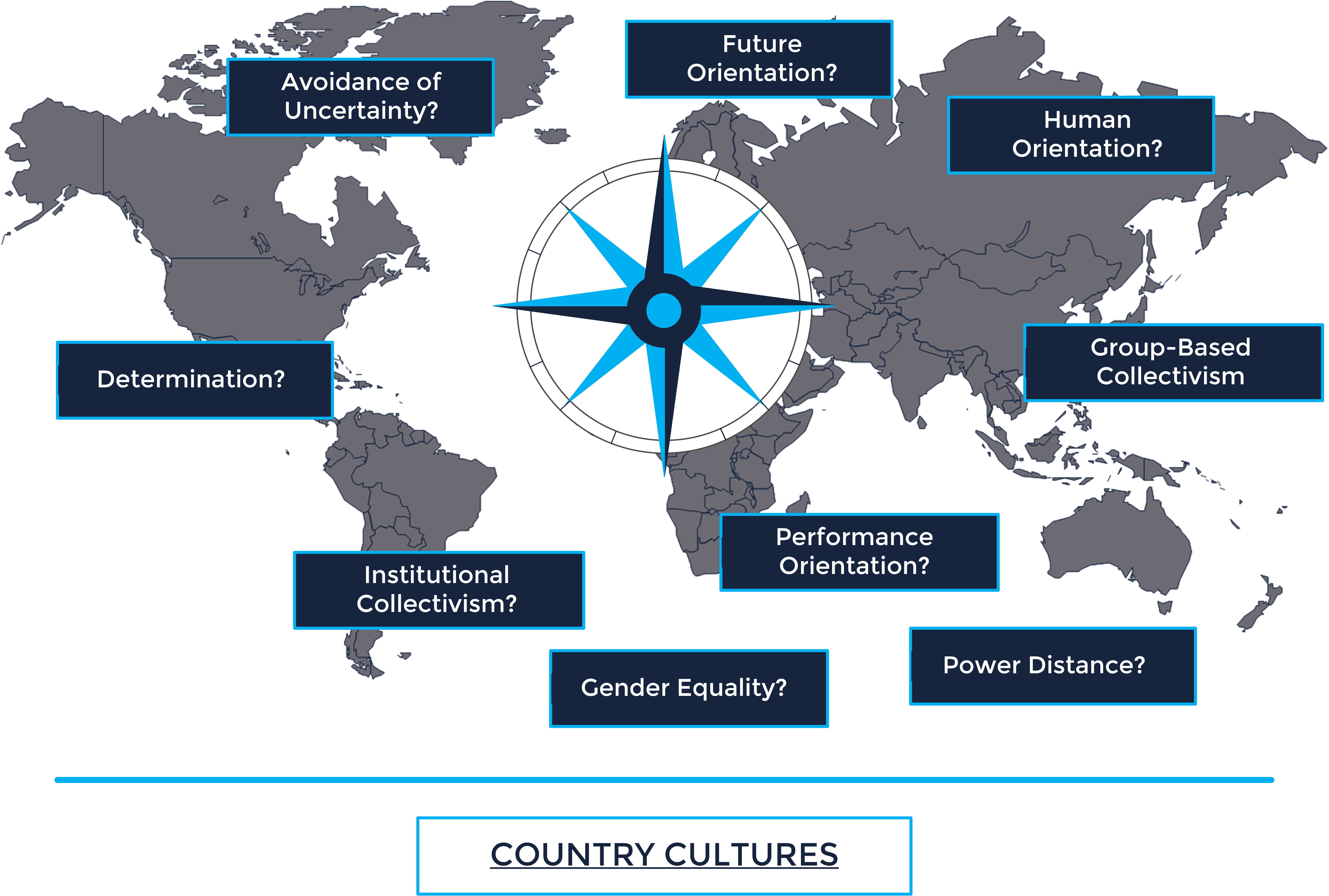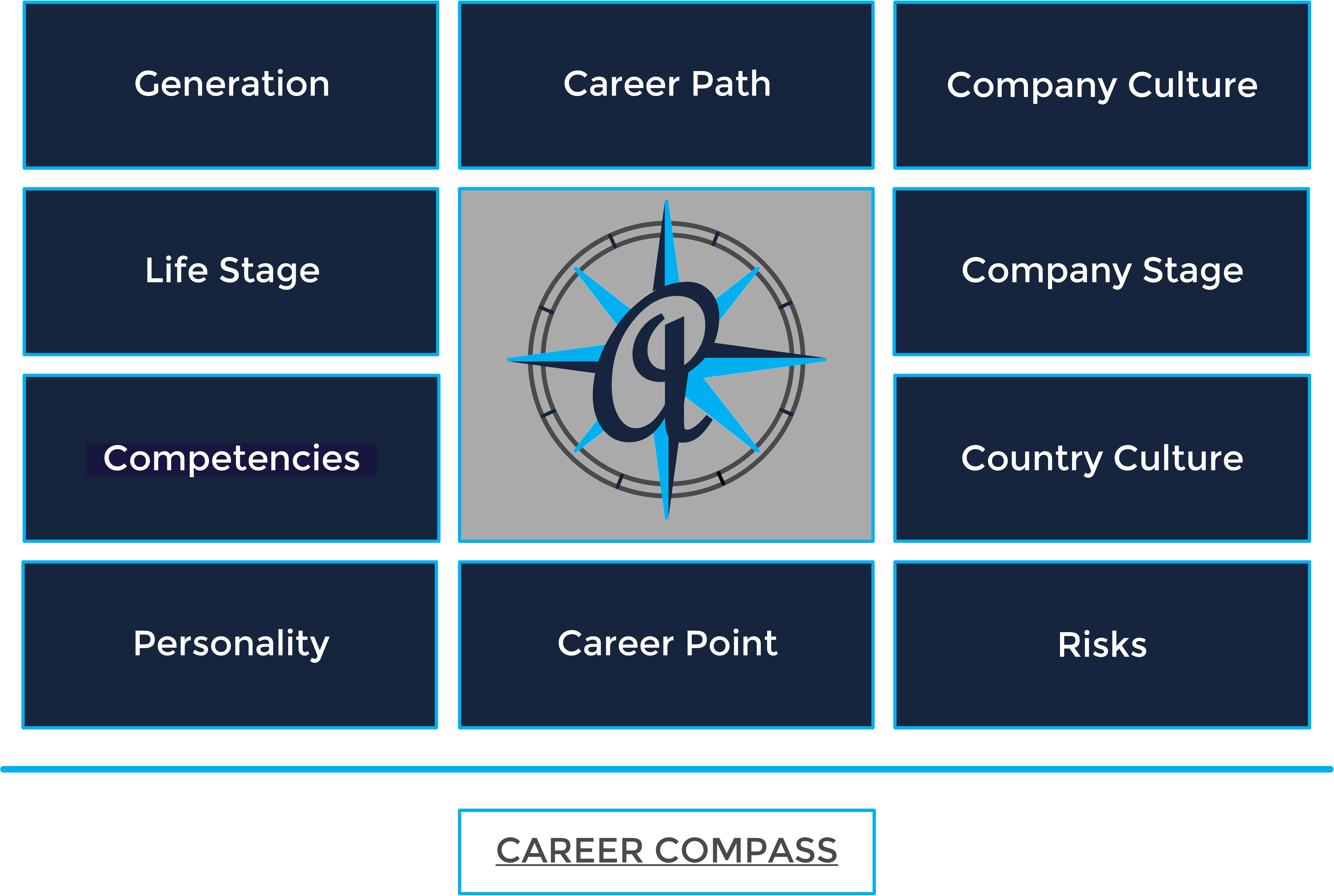Where do you have your roots?
Your Country Culture

The culture in which you grew up / live also determines your career compass. However, the diversity of cultural influences makes it difficult to find generalities. Two pioneering studies (Hofstede, GLOBE study) define the following cultural dimensions (KD) for classification.
Uncertainty avoidance
Is a high degree of standardization sought or is a flexible, innovative environment allowed? Describes the extent to which ambivalent and uncertain situations are avoided by adhering to norms, standards and rules. To what extent are ambivalent situations and ambiguities tolerated in a company? To what extent must all process steps always be clearly communicated according to a predefined scheme?
Power distance
Describes the extent to which an unequal distribution of power is accepted in society. Are decisions in this country generally made more autocratically or participatively? To what extent is an unequal distribution of power accepted in society? To what extent must certain hierarchical positions be taken into account in communication? For example, do negotiating partners only carry out instructions from their superiors?
Institutional collectivism (collectivism 1)
Describes community orientation or loyalty in relation to an entire society. Are personal goals (individualism) preferred to community goals (collectivism)?
Group-based collectivism (collectivism 2)
Describes community orientation or loyalty to a specific group such as family or company.
Gender Equality
Describes the extent to which a collective strives for gender equality. Does a classic gender role prevail and are monetary incentives and career prospects in the foreground (masculine) or is more emphasis placed on a harmonious, long-term working relationship (feminine)?
Determination
Describes how assertive, dominant and aggressive action is taken within a collective. How assertive, dominant and aggressive is action within a collective? To what degree are emotions allowed to be shown directly, such as aggressiveness? This also determines the culturally appropriate way of dealing with conflicts.
Future orientation
Describes the extent to which planning and investing for the future is practiced and valued.
Achievement Orientation
Describes the extent to which performance is encouraged and rewarded. This dimension also includes the extent to which innovative problem-solving approaches are socially rewarded.
Human orientation
Describes the importance of principles such as kindness, fairness and altruism.

